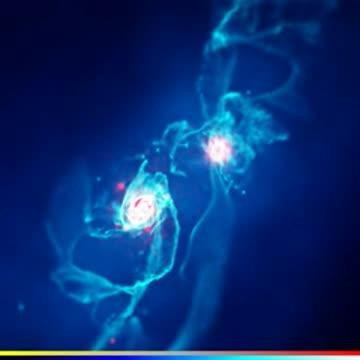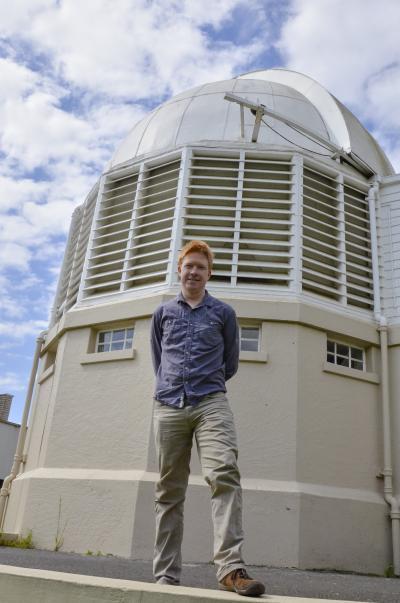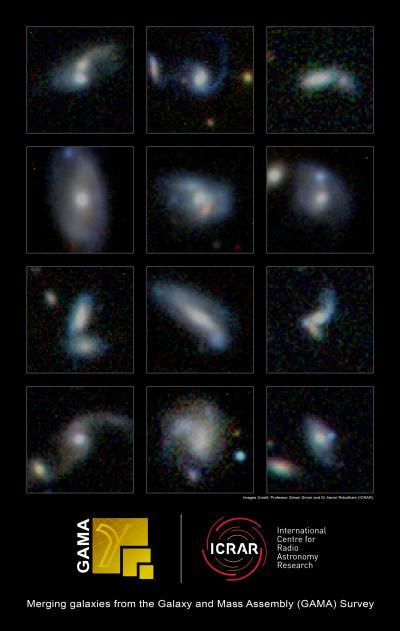But Dr Robotham said the Milky Way is eventually going to get its comeuppance when it merges with the nearby Andromeda Galaxy in about five billion years.
"Technically, Andromeda will eat us because it's the more massive one," he said.
Almost all of the data for the research was collected with the Anglo-Australian Telescope in New South Wales as part of the Galaxy And Mass Assembly (GAMA) survey, which is led by Professor Simon Driver at ICRAR.
The GAMA survey involves more than 90 scientists and took seven years to complete.
This study is one of over 60 publications to have come from the work, with another 180 currently in progress.
Dr Robotham said as galaxies grow they have more gravity and can therefore more easily pull in their neighbours.
He said the reason star formation slows down in really massive galaxies is thought to be because of extreme feedback events in a very bright region at the centre of a galaxy known as an active galactic nucleus.

In about five billion years time, nearby massive galaxy Andromeda will merge with our own galaxy, the Milky Way, in an act of galactic cannibalism (technically Andromeda will be eating us, as it's the bigger of the two galaxies.).
There haven't been any large mergers with our galaxy recently, but we can see the remnants of galaxies that have previously been snacked on by the Milky Way. We're also going to eat two nearby dwarf galaxies, the Large and Small Magellanic Clouds sometime in the future.
This simulation shows what will happen when the Milky Way and Andromeda get closer together and then collide, and then finally come together once more to merge into an even bigger galaxy.
(Photo Credit: Simulation : Prof Chris power (ICRAR-UWA), Dr Alex Hobbs (ETH Zurich), Prof Justin Reid (University of Surrey), Dr Dave Cole (University of Central Lancashire) and the Theoretical Astrophysics Group at the University of Leicester.Video Production : Pete Wheeler, ICRAR.)
"The topic is much debated, but a popular mechanism is where the active galactic nucleus basically cooks the gas and prevents it from cooling down to form stars," Dr Robotham said.
Ultimately, gravity is expected to cause all the galaxies in bound groups and clusters to merge into a few super-giant galaxies, although we will have to wait many billions of years before that happens.
"If you waited a really, really, really long time that would eventually happen but by really long I mean many times the age of the Universe so far," Dr Robotham said.

This is Dr Aaron Robotham from the International Centre for Radio Astronomy Research.
(Photo Credit: Dr Joe Liske)

These are some of the many thousands of merging galaxies identified within the GAMA survey.
(Photo Credit: : Professor Simon Driver and Dr Aaron Robotham, ICRAR.)